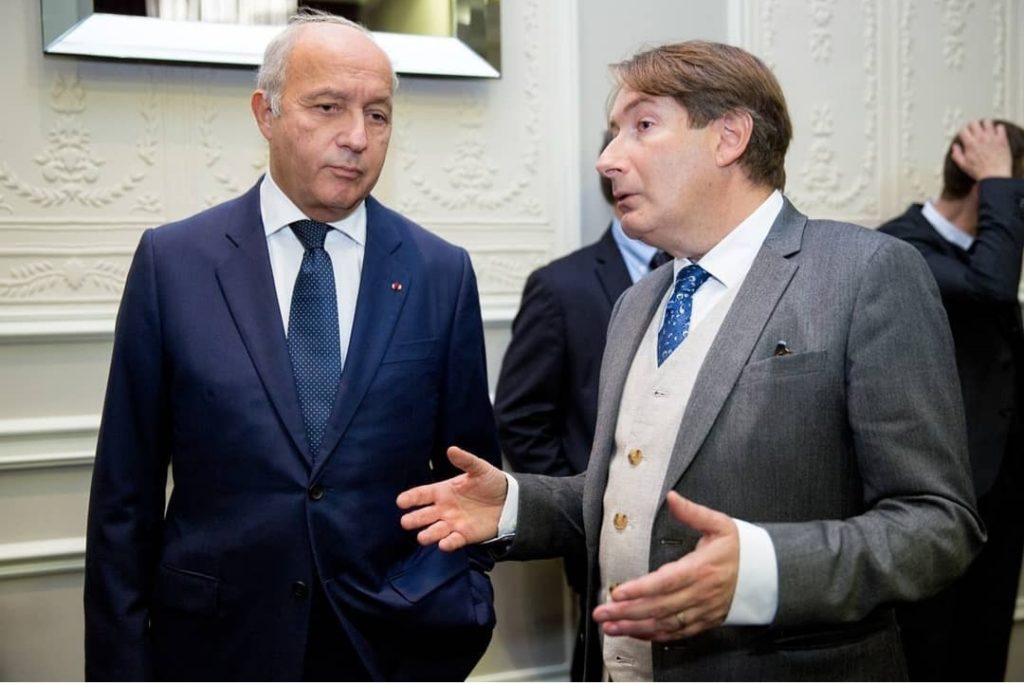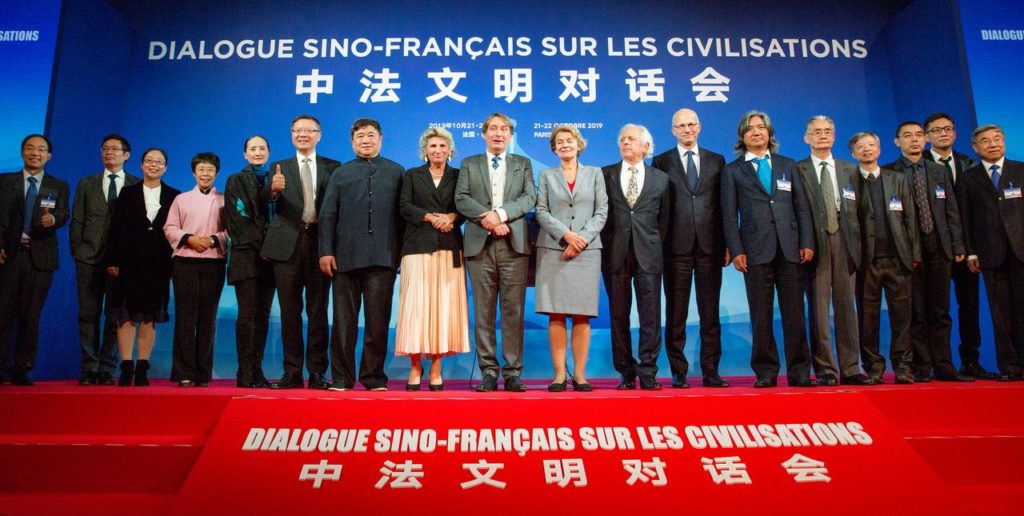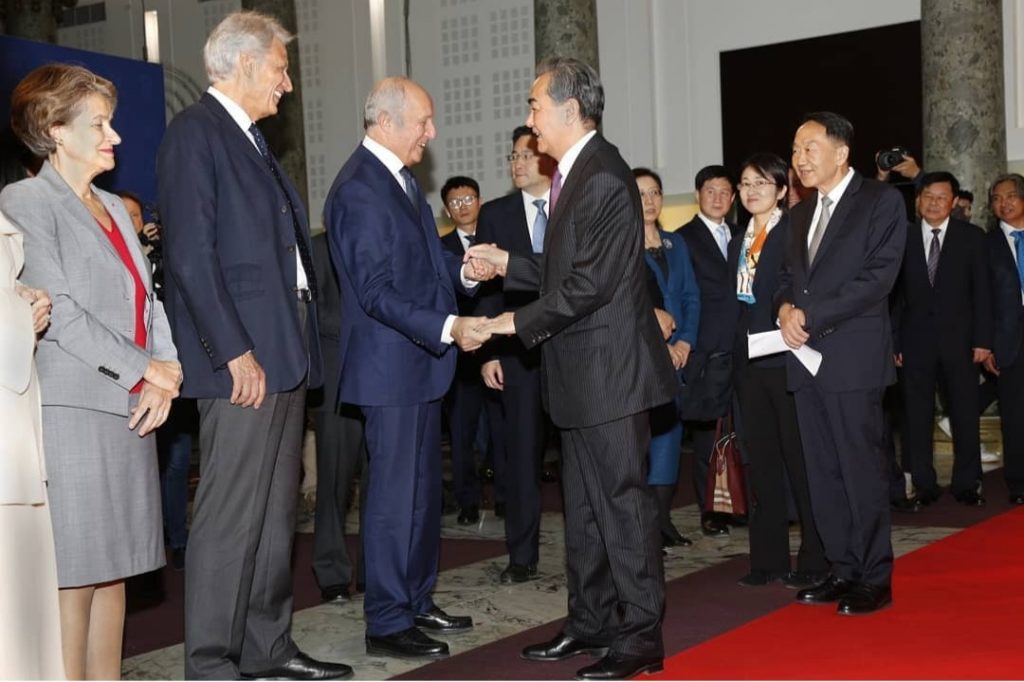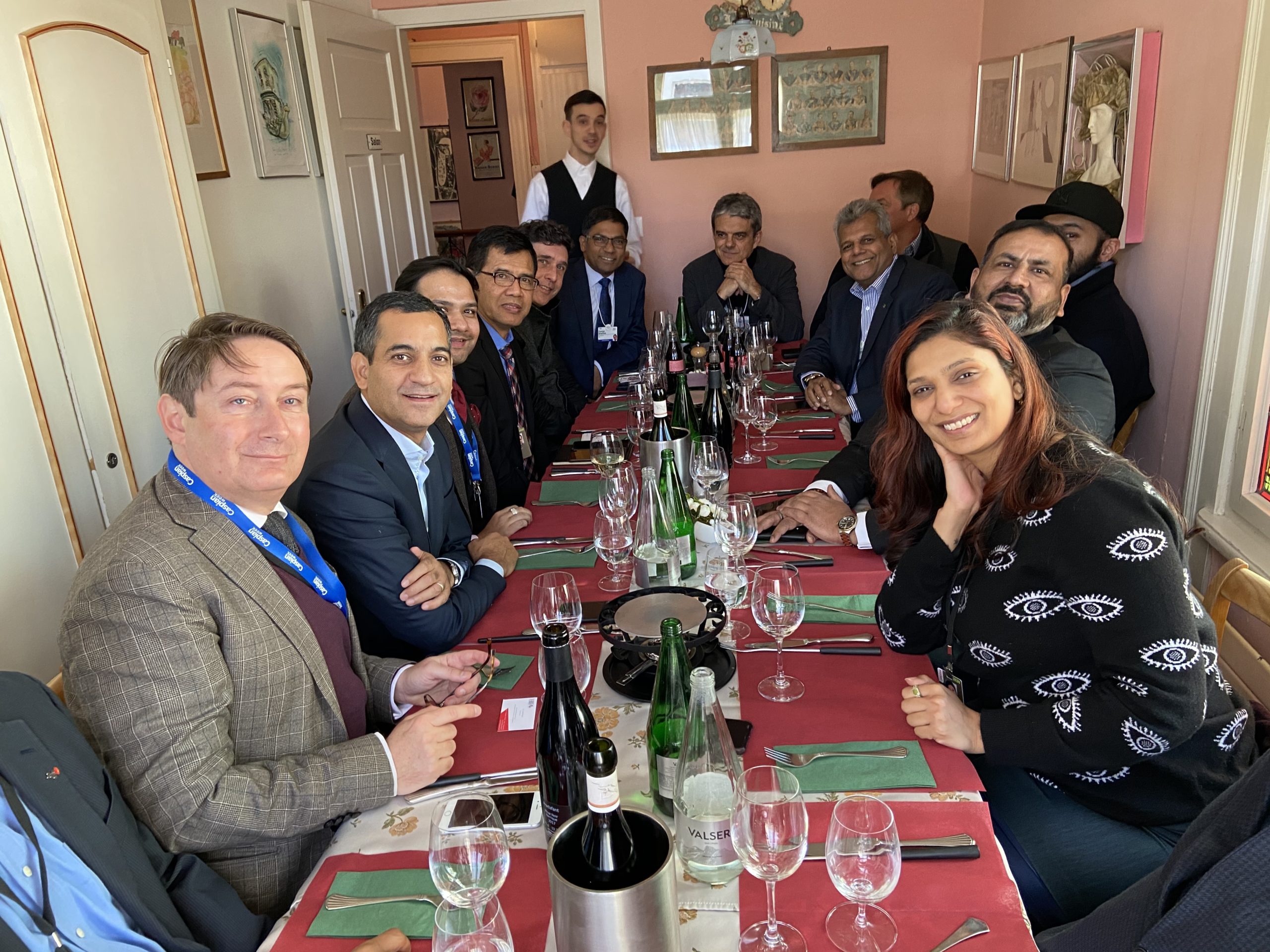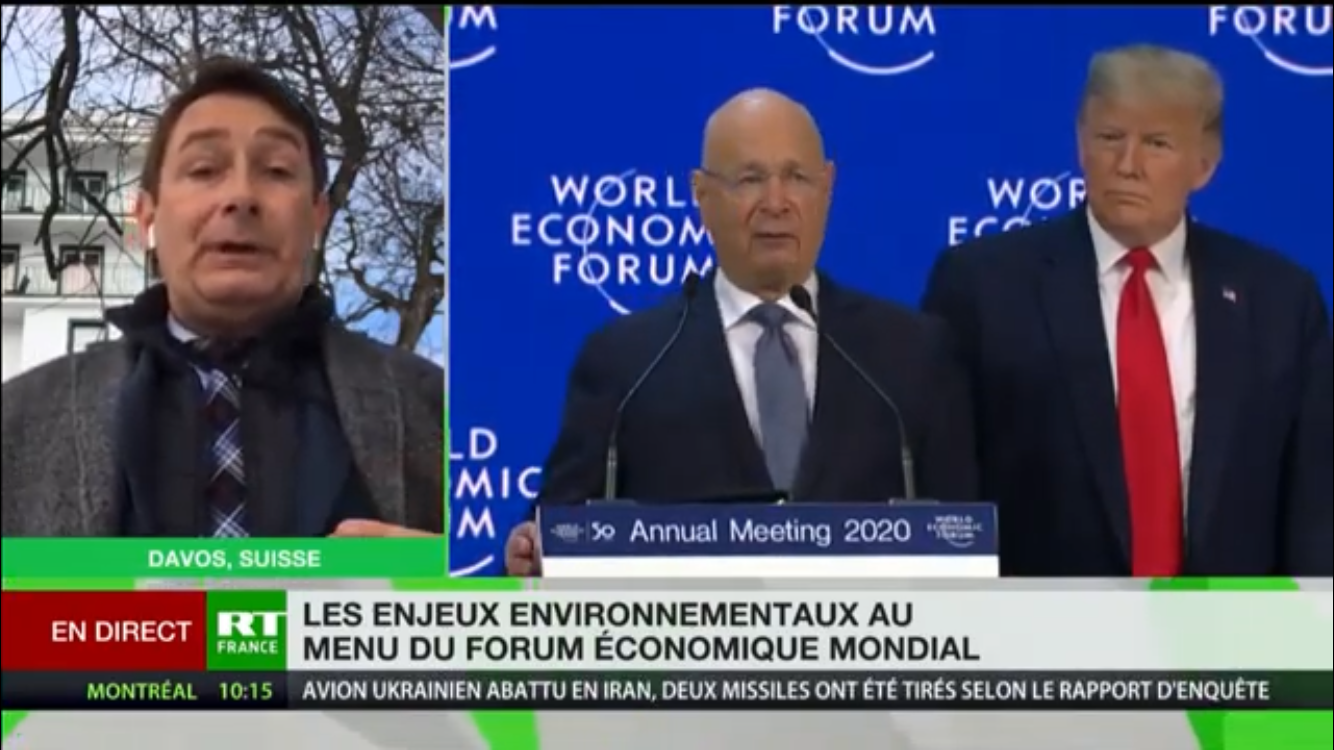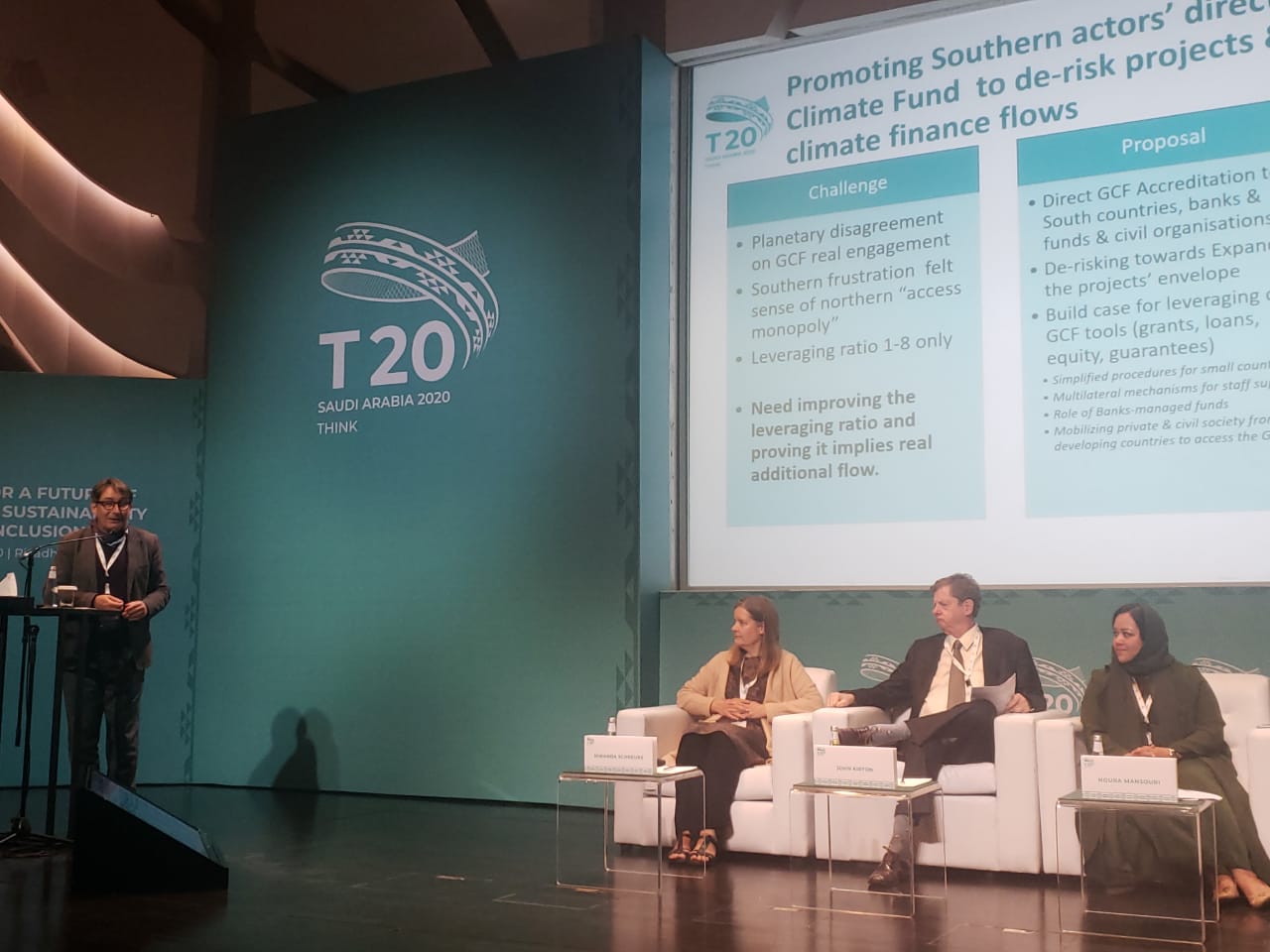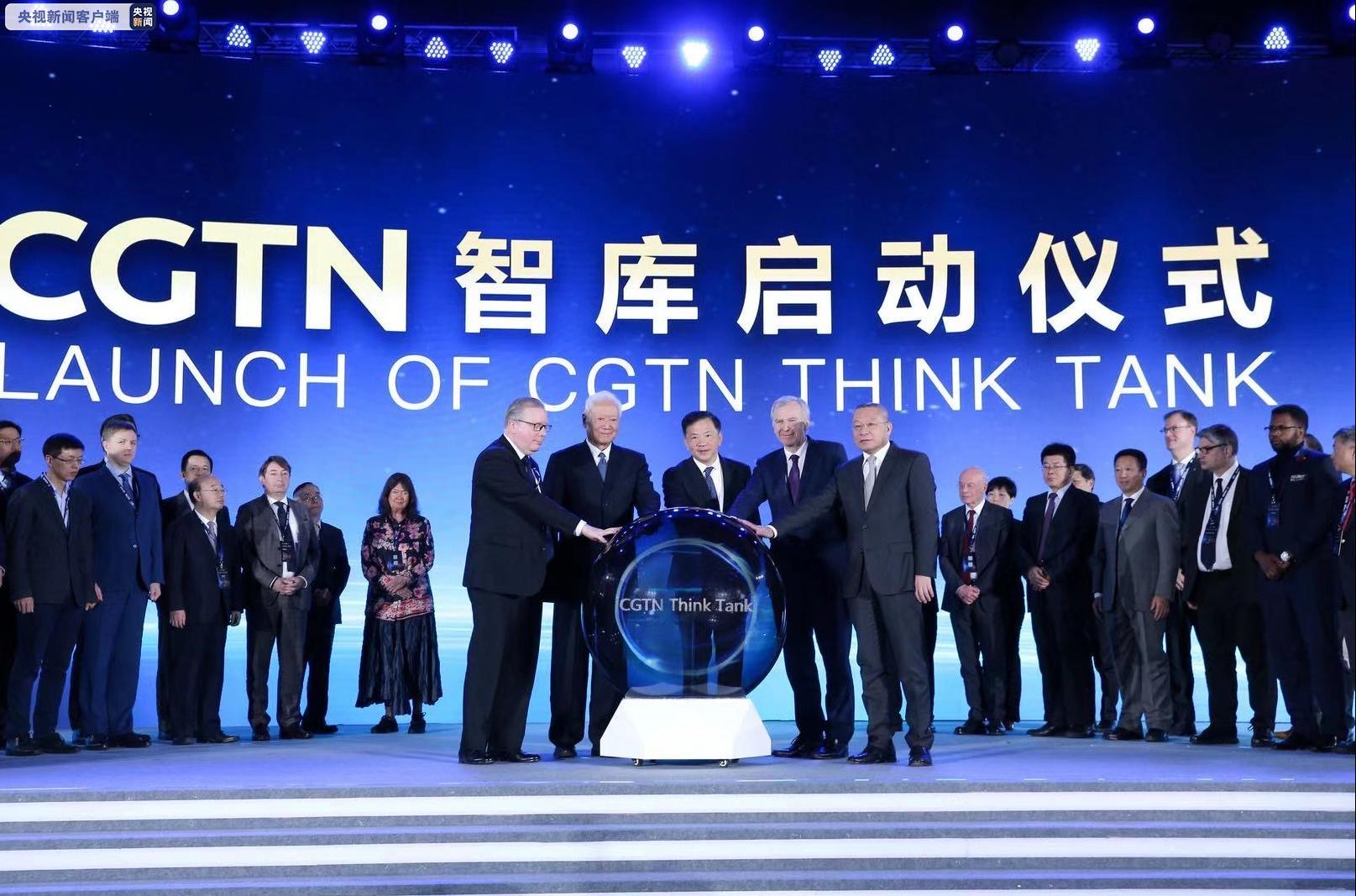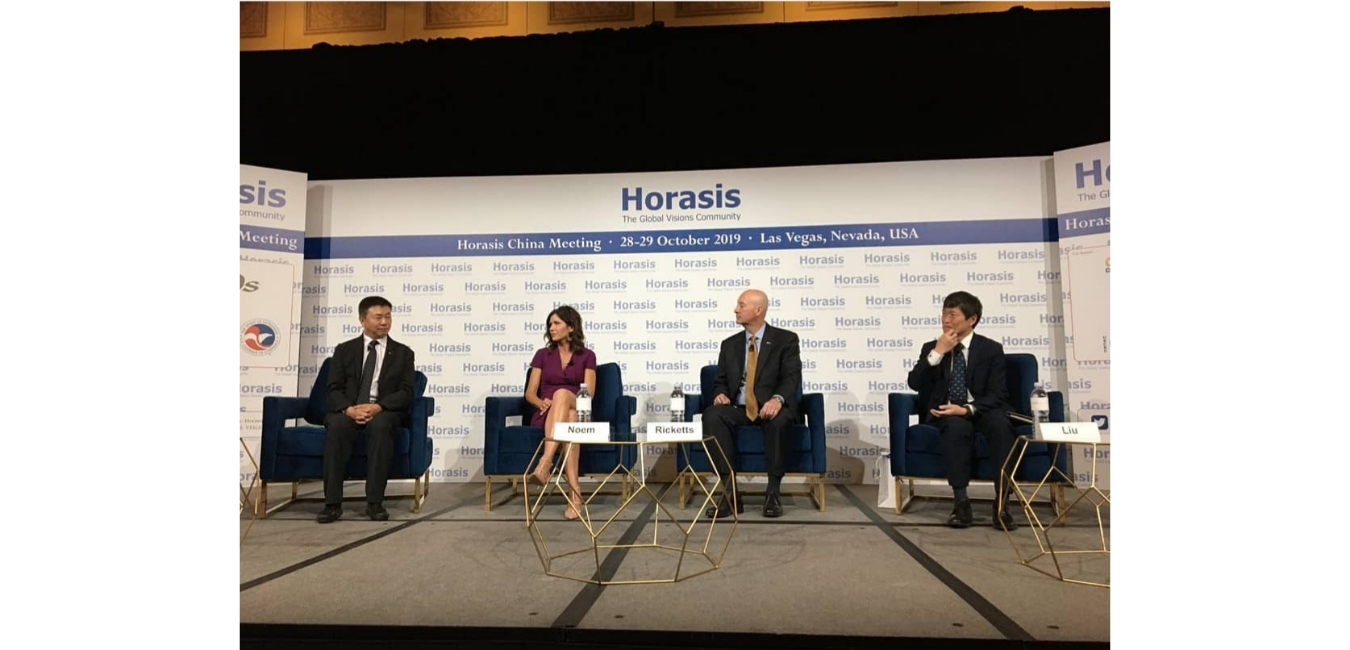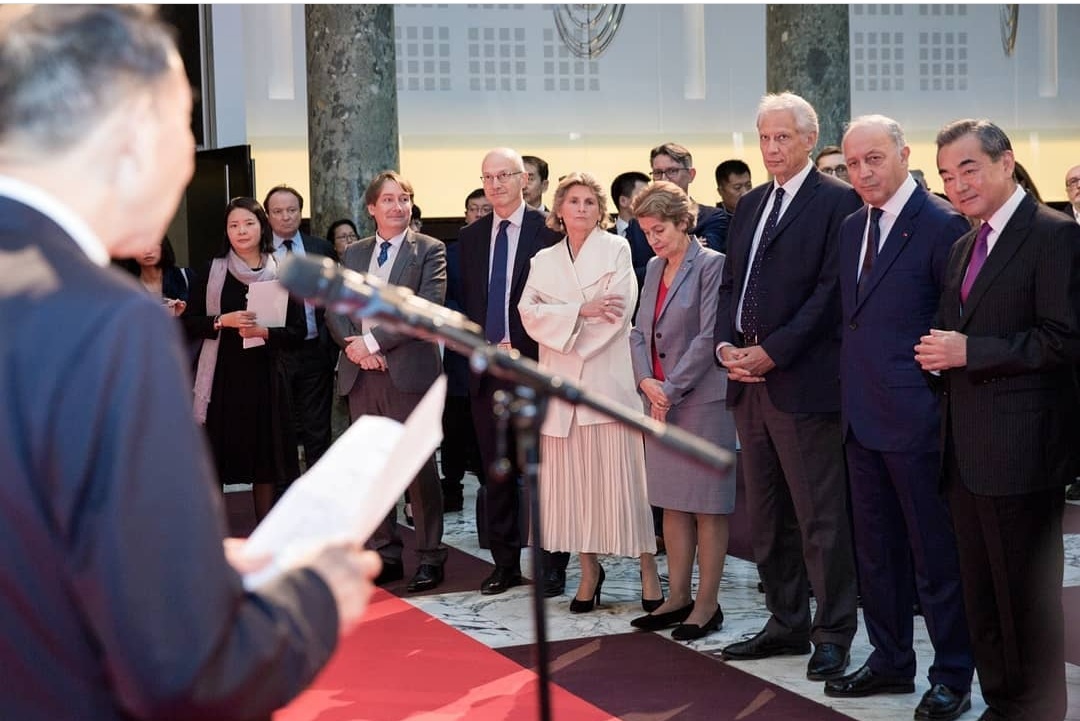Joël Ruet on France24 – Coronavirus: Can European coordination be enough?
Joël Ruet analyses European coordination and Chinese response to the Covid-19 pandemic on French television channel France24.
Watch his intervention here.
Innovation lunch by The Bridge Tank in Davos
The Bridge Tank organized on the sidelines of the World Economic Forum in Davos an international workshop on the theme: “Accelerating the smart city – financing solutions and project governance for emerging markets. “
The bridge tank organised an industry conversation on « accelerating the smart city – financing solutions & project governance for emerging markets », convened by Joel Ruet & our Board Member Pranjal Sharma. The event was the opportunity to exchange on how to Kick-start the Smart cities: How to go from ideas to projects, from projects to returns, from returns to smart cities that work. How can entrepreneurs, companies, investors gear into initiatives that are left free to succeed by the city authorities, for smart cities to no longer mean blueprints but develop and operate as a true industry?
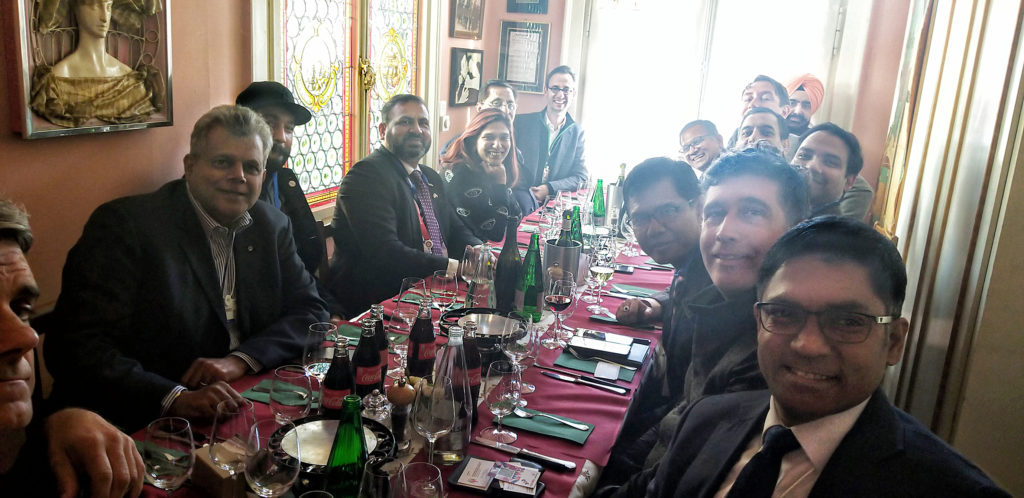
Our starting point was that « smart cities » have been on the air for long ; had they picked the magnitude we talked them about, we’d see them everywhere by now. We discussed the evolving funding criteria for smart cities; their ever evolving challenges and meeting them for smart cities funding.
First of all, contributors reminded the definition issue, ranging from mere energy, food or water conservation to smart and widespread use of data, through new cities, real estate with an ecosystem community including schools for talents, etc.
The second issue was on governance: how to decide, how to fund them? Which strategies between new cities and modifying existing ones? And how not to forget the smart villages? The Indian rural experience was discussed, on strategies to move from thermal diesel to solar, generalise wifis and digital bank accounts, digital crop data management for fertilizers.
Some participants from emerging countries were on the position that smartness should be tested in villages and then extended to smart cities; the example of Punjab was mentioned, which started from the district level, then with 3 smart cities in Punjab. IFC’s experience in digitalisation in “Invest in Africa” program was also mentioned as a successful pilot. However, cheap internet through mobile systems isn’t per se making a smart city. The issue of space was mentioned: smartness is not just about digitalization but requires space: in already congested cities this raises serious concerns.
The issue of public governance and private profitability were mentioned, but we dedicated a large space of our conversation to the issue of enabling citizens: as they become smart, so does the city they live in. “Innovation clusters”, with the Ukrainian example this time, were mentioned in such a spirit of rather looking at what brings people together, not necessarily having to involve the government.
Last, economic practice were mentioned: not just about introducing technology but also co-living, sharing economy, etc., and, at the end, a more segmented approach for circular economy, between premium / mass segments.
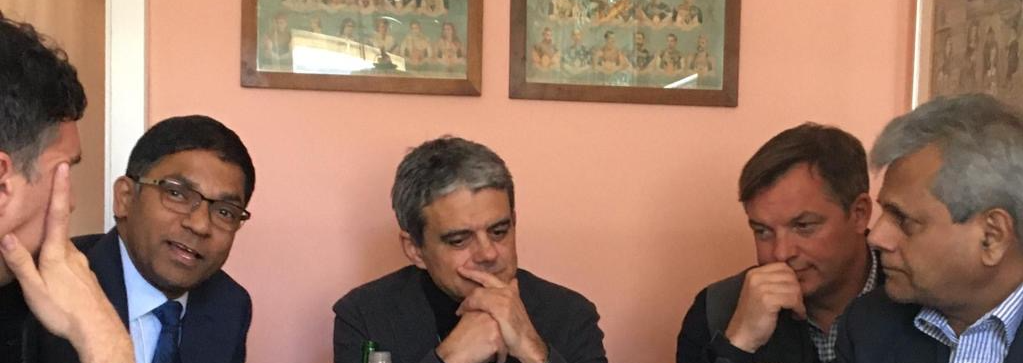
The Bridge Tank’s 2020 Davos – Highlights
As each year, Davos is too hectic to come into a post. Here are, beyond our own organized “Innovation Lunch”, some highlights.
We started with a TV interview on this year’s theme on sustainable environment at the 50th World Economic Forum – https://www.youtube.com/watch?v=cwk5r9PJcPE . The Davos forum of course lags behind on the environment but, despite “We will not save the planet only with companies, but we will not save the planet without companies”.
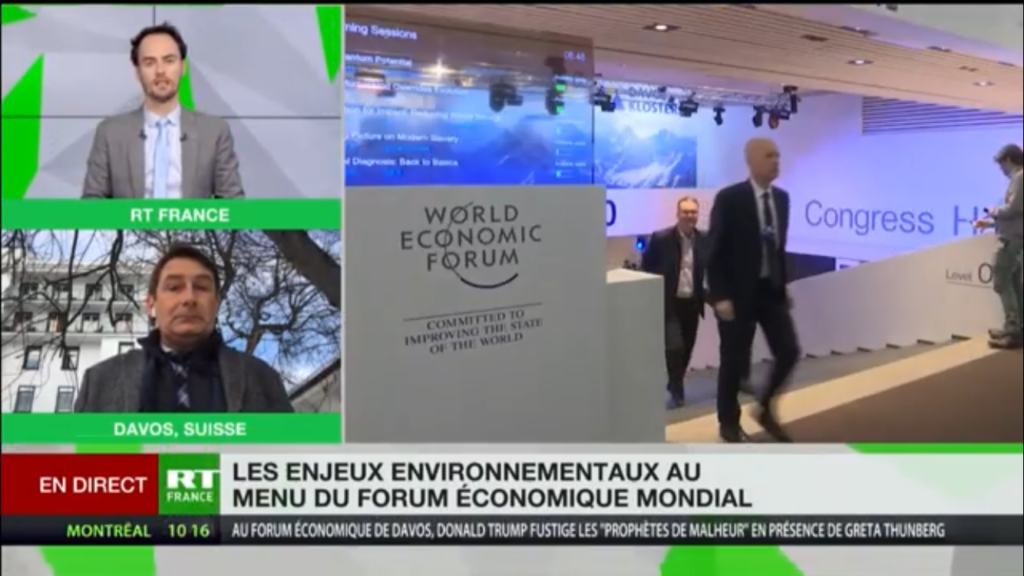
As last year, The Bridge Tank participated in the 4th Davos Forum on the Silk Roads, / Belt and Road Initiative. A discussion on how to move “from the old globalization that benefits some, to a new globalization focused on the belt and the road that benefits everyone and is of high quality”. Who said Davos is not political ?
On more economic found, the idea was to debate “More international public goods (open to all) than private goods (for shareholders)”.
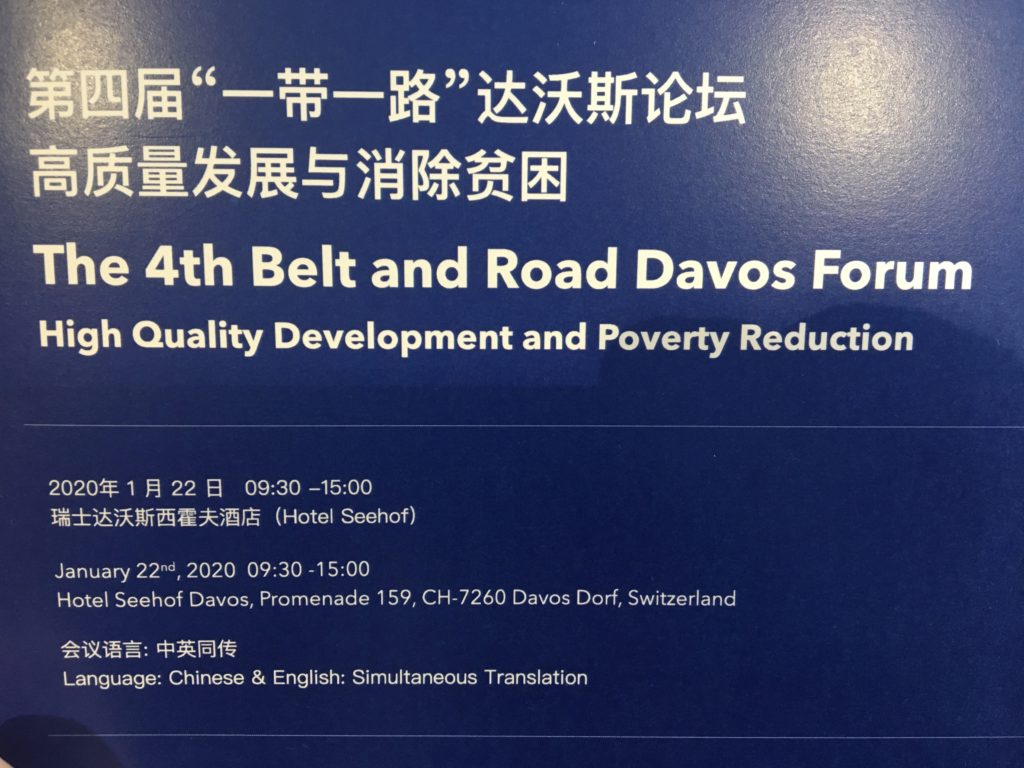
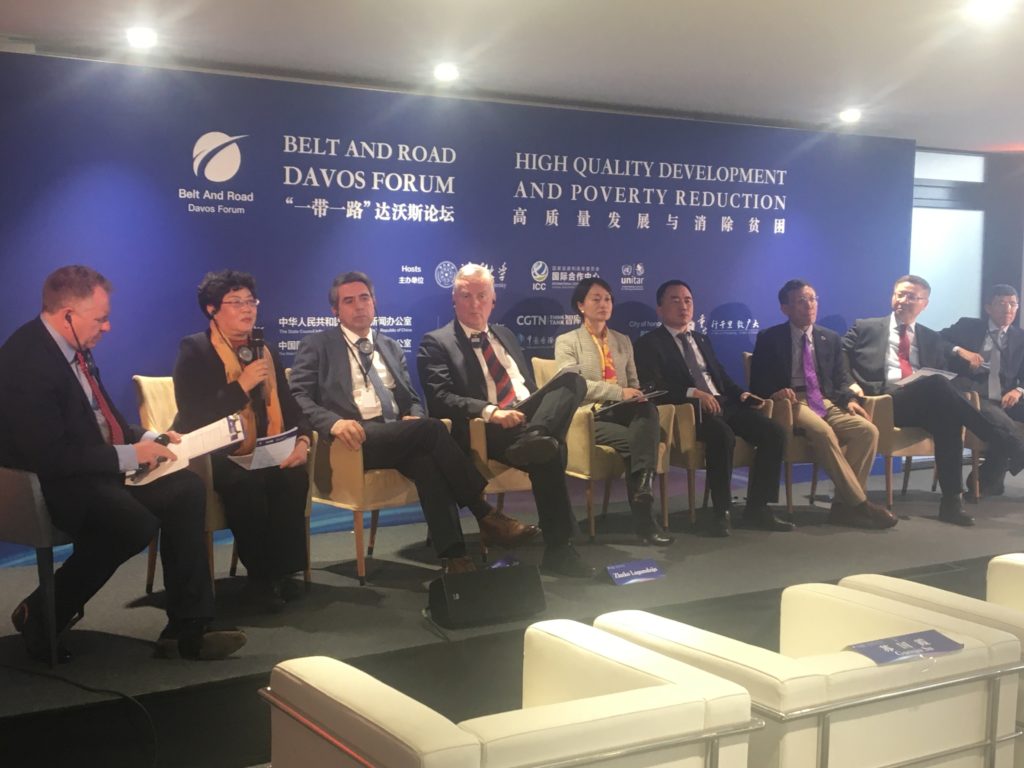
Last but not least glimpse of this year, we enjoyed the Davos “Open” Forum through an amazing keynote speaker and player: Yo Yo MA.

The Bridge Tank participated in the G20 / Think20 kick-off meeting in Riyadh
At this meeting we presented our ideas and plans for a policy brief to G20 leaders on increasing the financial envelope of the Green Climate Fund. The Brief will be directed by The Bridge Tank and involves contributors from Tunisia, China, India, Indonesia, Germany, Italy and France.
Over the past 5 years, we have contributed to the Task Force on “Climate change and finance” of the T20, and seen the exercise progress and deepen. When G20 leaders decide to unite, solutions are ready through engagement groups like the T20.
We received a warm welcome from the Saudi Arabian G20 presidency and the global T20 teams.
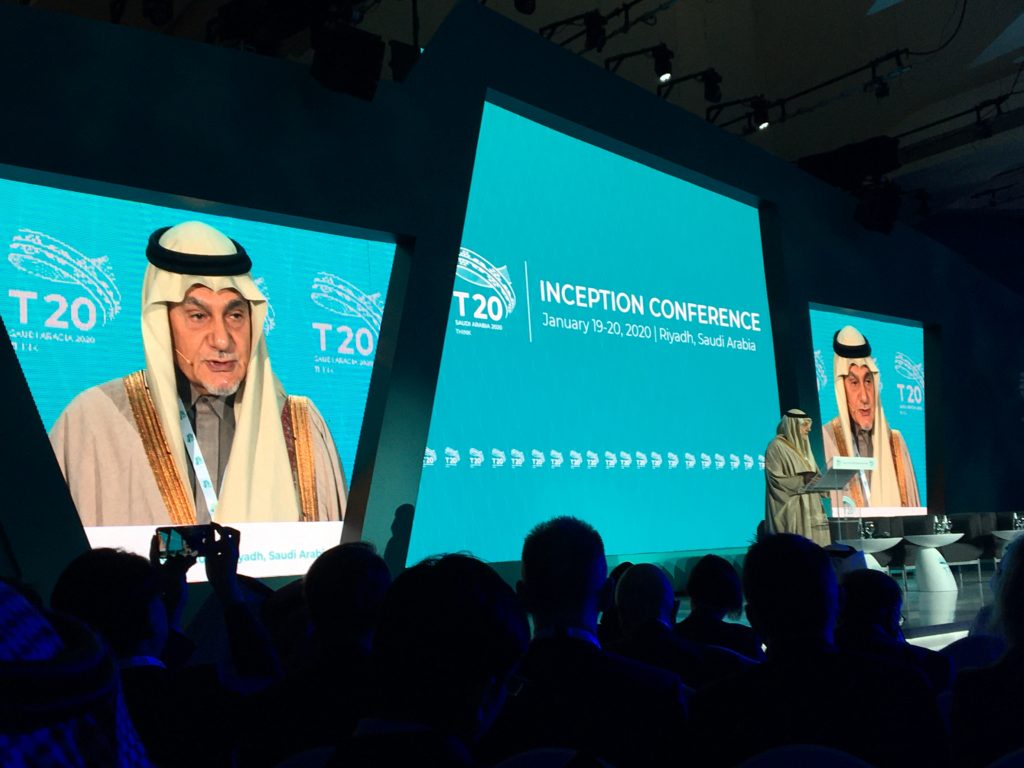
In the Plenary, HRH Prince Turki al Faycal bin Saud, long time head of Saudi intelligence, gave a keynote to Think20/G20 experts, encouraging us for innovative funding solutions, in line with our policy proposals on Green Climate Fund: fast direct access to southern countries, funds and NGOs.
The Bridge Tank’s week in Beijing for the launch of CGTN Think Tank
In early December 2019, The Bridge Tank travelled to Beijing, China on the occasion of the launch of CGTN Think Tank. Represented by its president Joël Ruet, The Bridge Tank’s presence in China proved a valuable opportunity to exchange with various foundations and think tank headquartered in Beijing.
As a founding partner of the organisation, The Bridge Tank attended the launch of CGTN Think Tank on December 4, 2019. This opening session, hosted by CGTN’s star presenter of World Insight, Zhang Hue, was broadcast live on national television.
The inauguration ceremony included speeches by Ban Ki-Moon, former Secretary General of the United Nations, Yves Leterme, former Belgian Prime Minister, and Martin Jacques, Senior Fellow at the Department of Politics and International of the University of Cambridge and Visiting Professor at the Fudan University of China.
On this occasion, Joël Ruet had the pleasure of meeting once again with Luan Jianzhang, Director of the International Department of the Central Committee of the Communist Party of China, who had visited The Bridge Tank’s team in Paris, in June 2019. He also exchanged with representants of the China International Publishing Group, as well as with Yu Yunquan, President of the Academy of Contemporary China and World Studies.
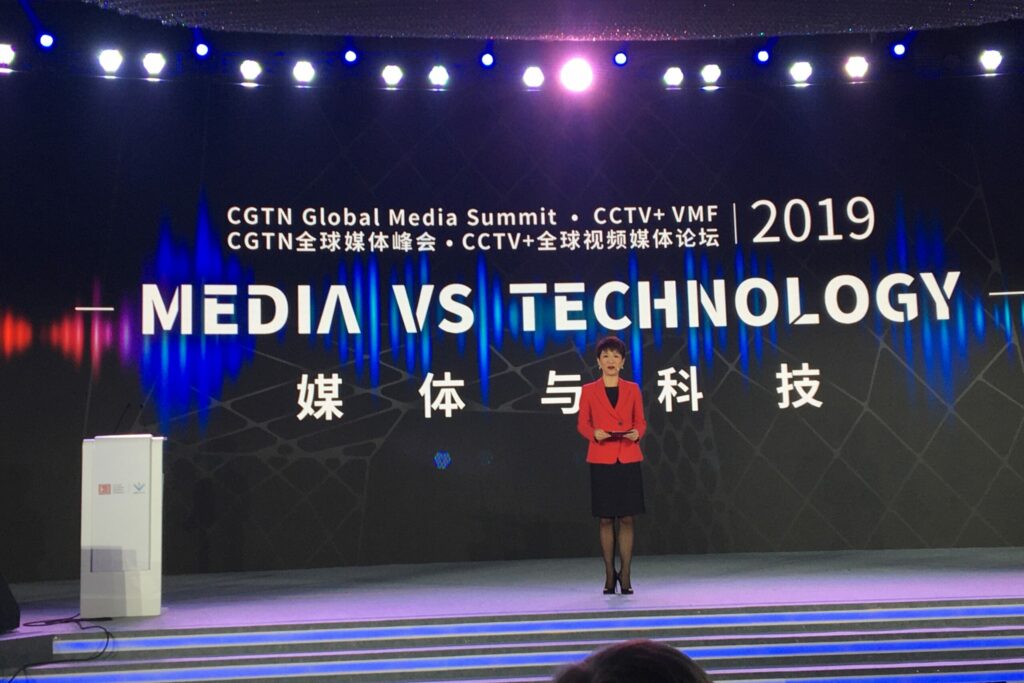
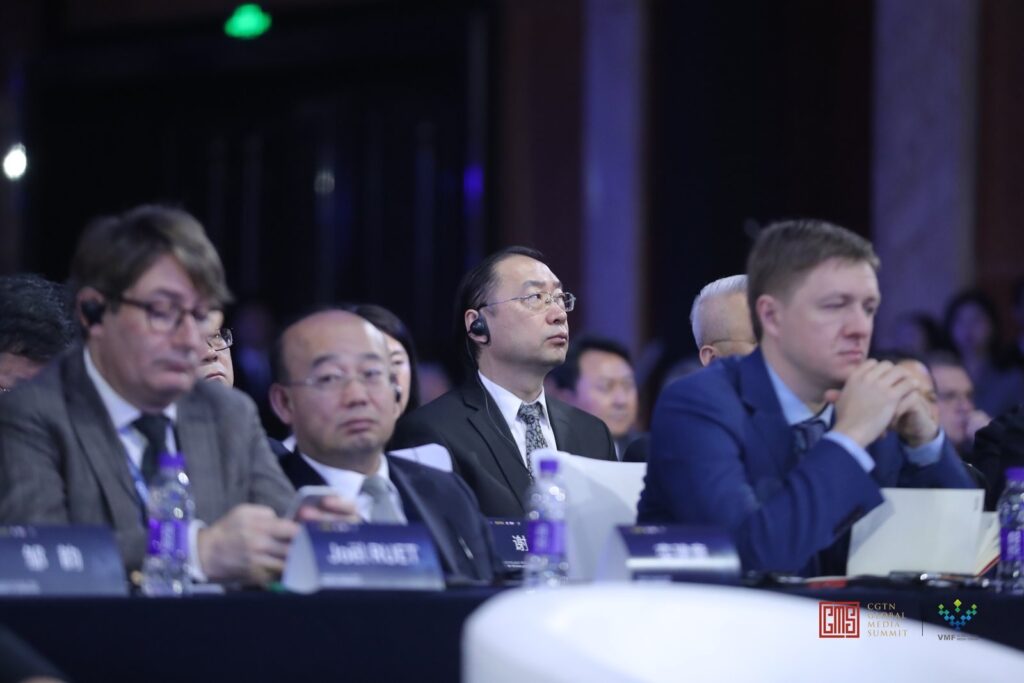
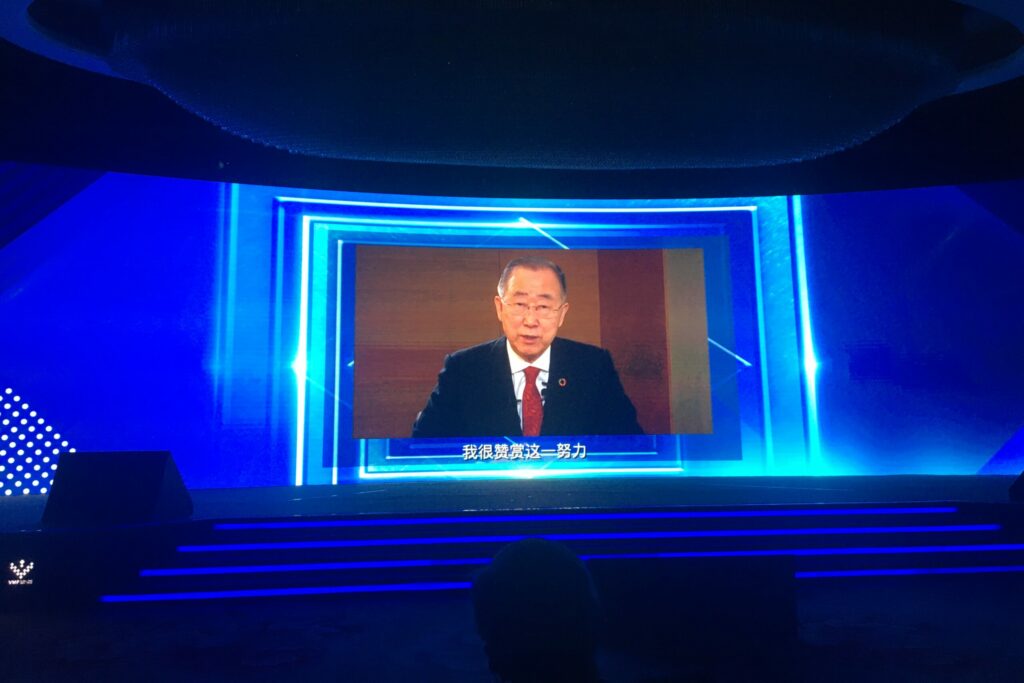
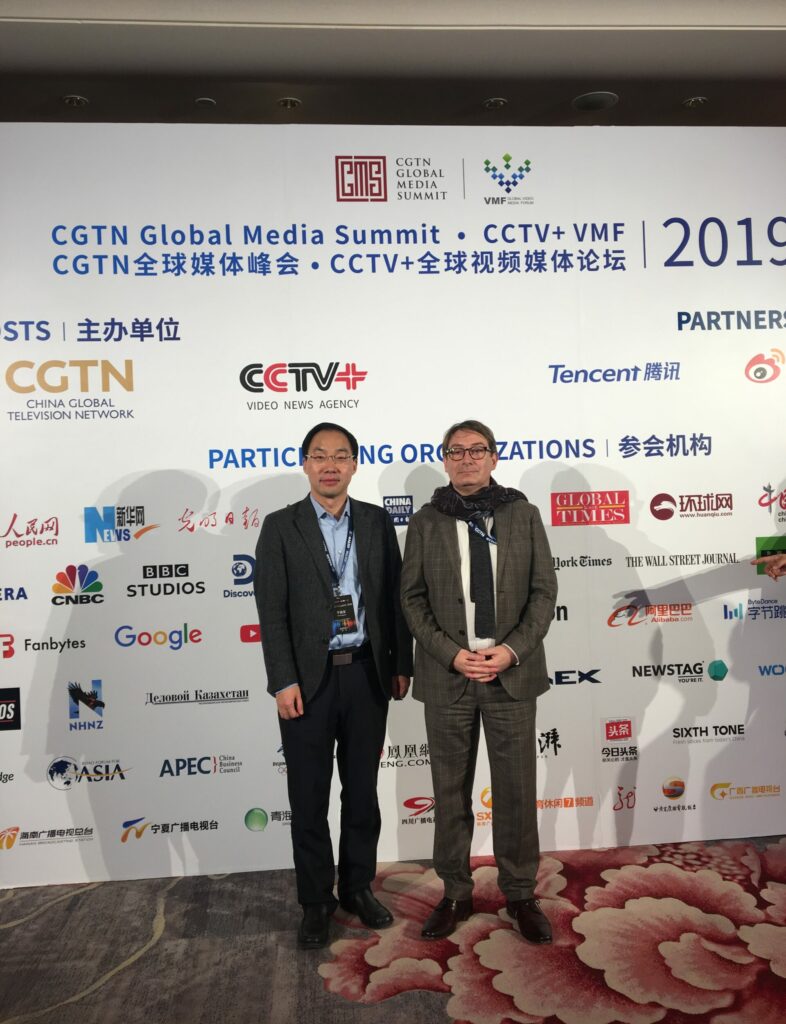
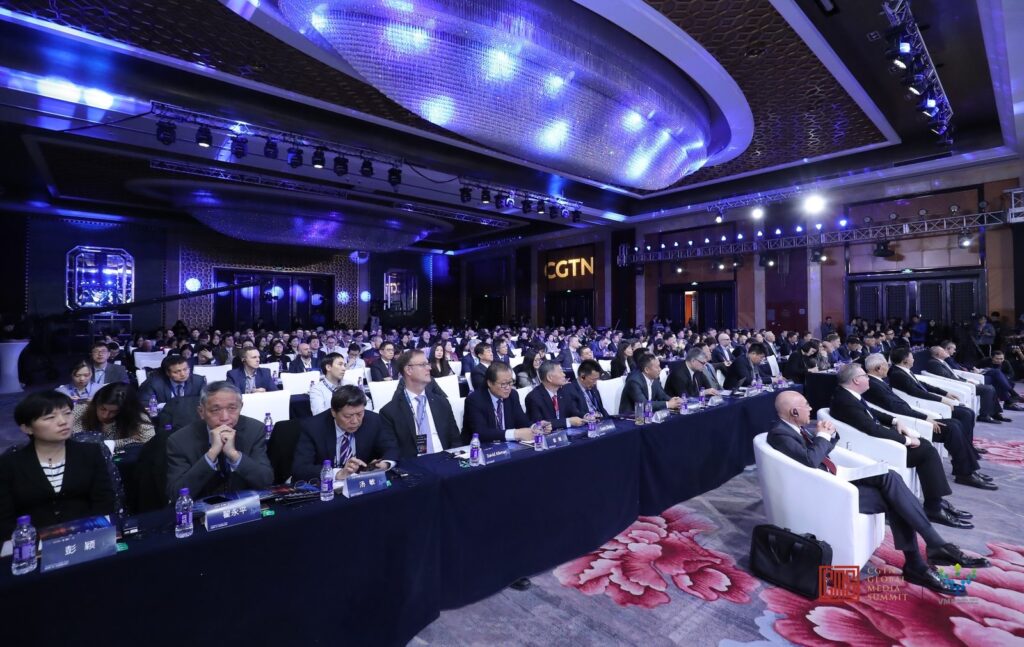
Following the launch, the CGTN Think Tank held its first event the very same day on the theme “Globalisation in transition: Adapting to a Changing World”. There, Joël Ruet took part in the opening session of this event, alongside Erlan Karin, political advisor to the President of Kazakhstan, Fraser Cameron, Director of the EU-Asia Centre in Brussels, and Zhai Yongping, Chief of Energy Sector Group of the Asian Development Bank.
The session was followed by a ceremony celebrating the 20 years of broadcasting of one of China’s most prominent talkshows: CGTN’s Dialogue with Yang Rui, its star presenter. As recurring guests of the show, Joël Ruet and Martin Jacques gave an interview testifying of their personal friendship with Yang Rui.
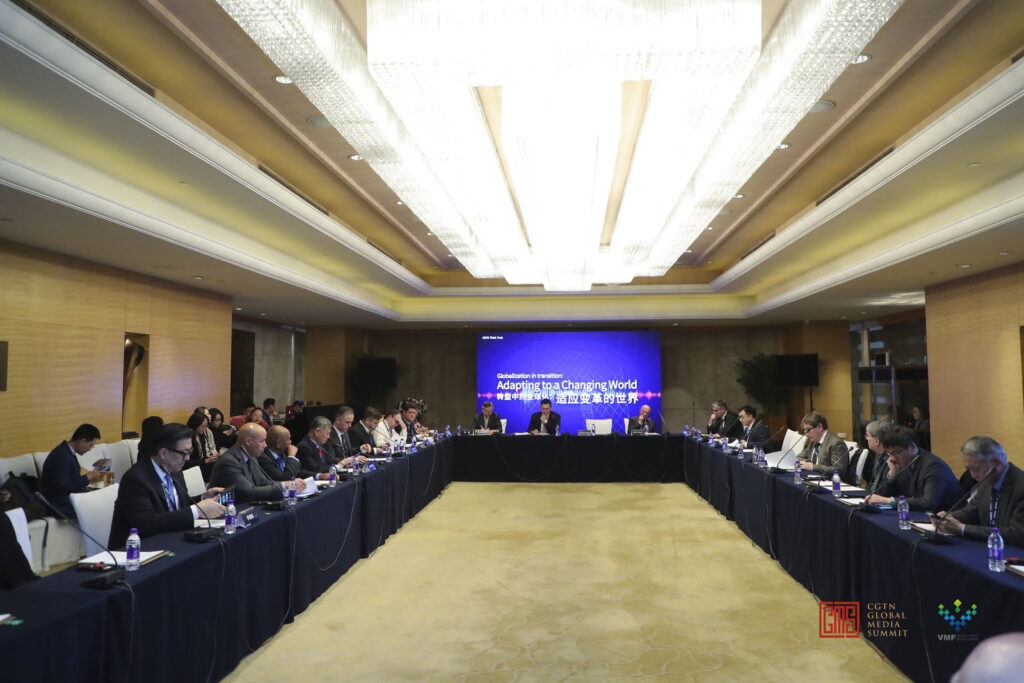
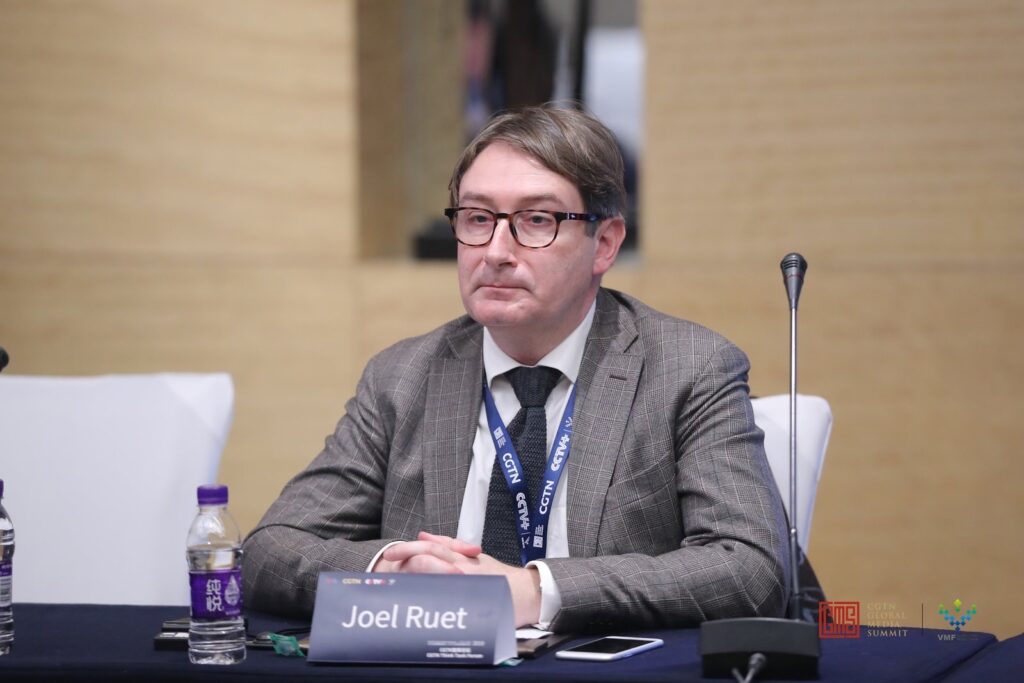
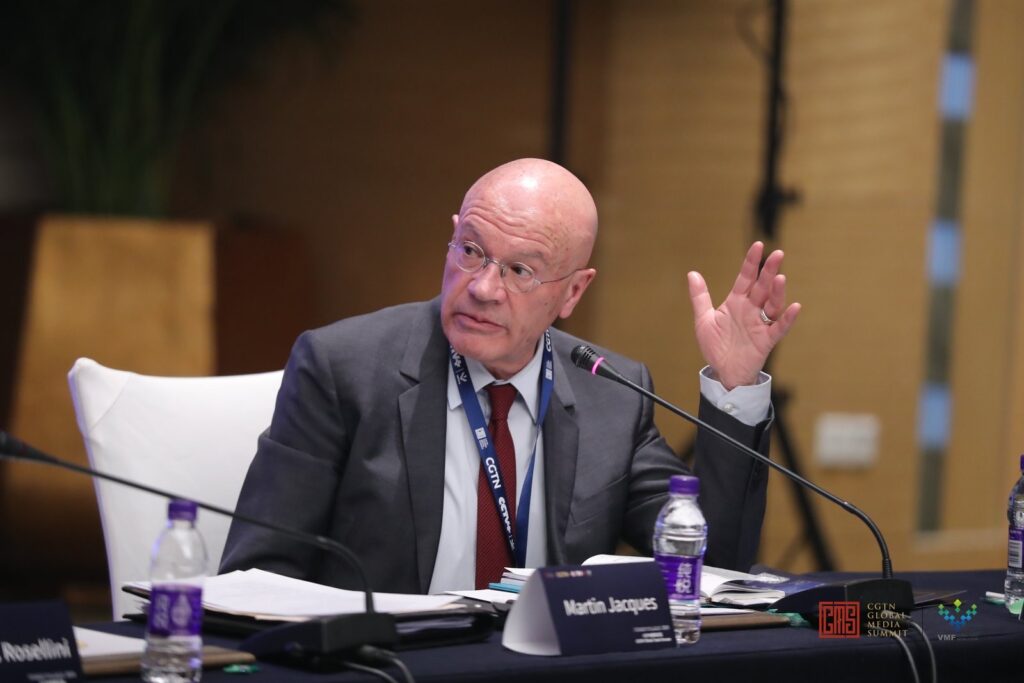
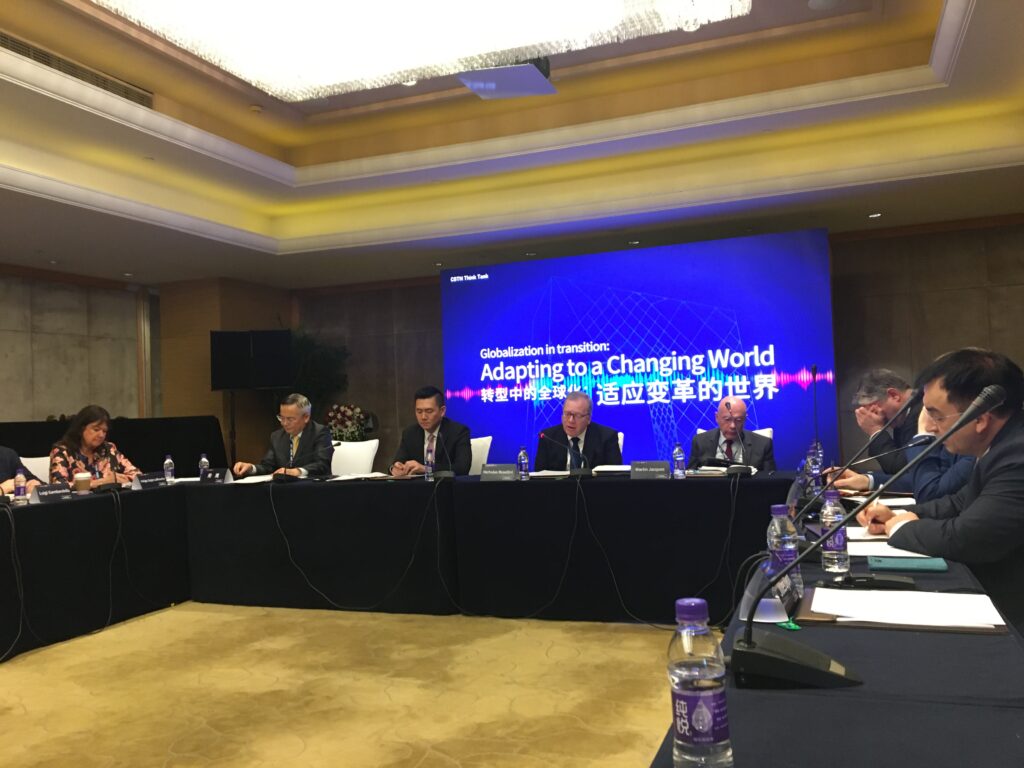
The Soong Ching Ling Foundation
Two days prior to the CGTN Think Tank launch, Joël Ruet met with the Chairman of the Soong Ching Ling Foundation, Wang Jiarui. This meeting on December 2, 2019 came a few months after the visit to Paris of a delegation representing this foundation. The Soong Ching Ling Foundation was created in 1986 by the China Welfare Institute, which had itself been founded by Rosamond Soong Ching-ling, former Honorary President of the People’s Republic of China. During their discussion, Joël Ruet highlighted the necessity for philanthropies to be opened to the people and not only to millionaires. He added that it was the mission of institutions such as the Foundation to promote this idea.
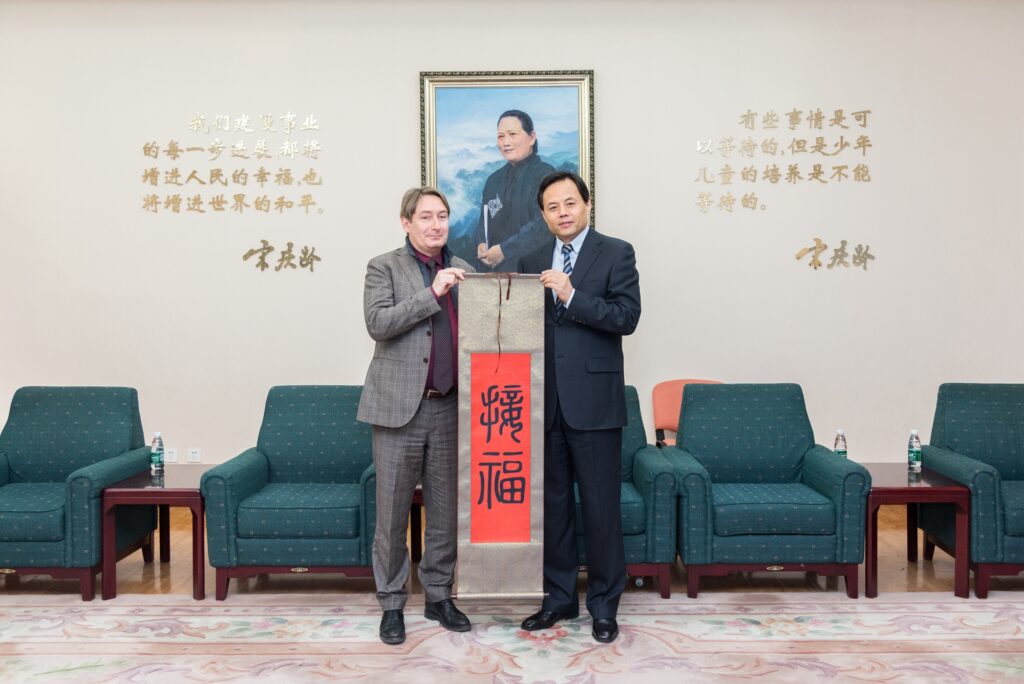
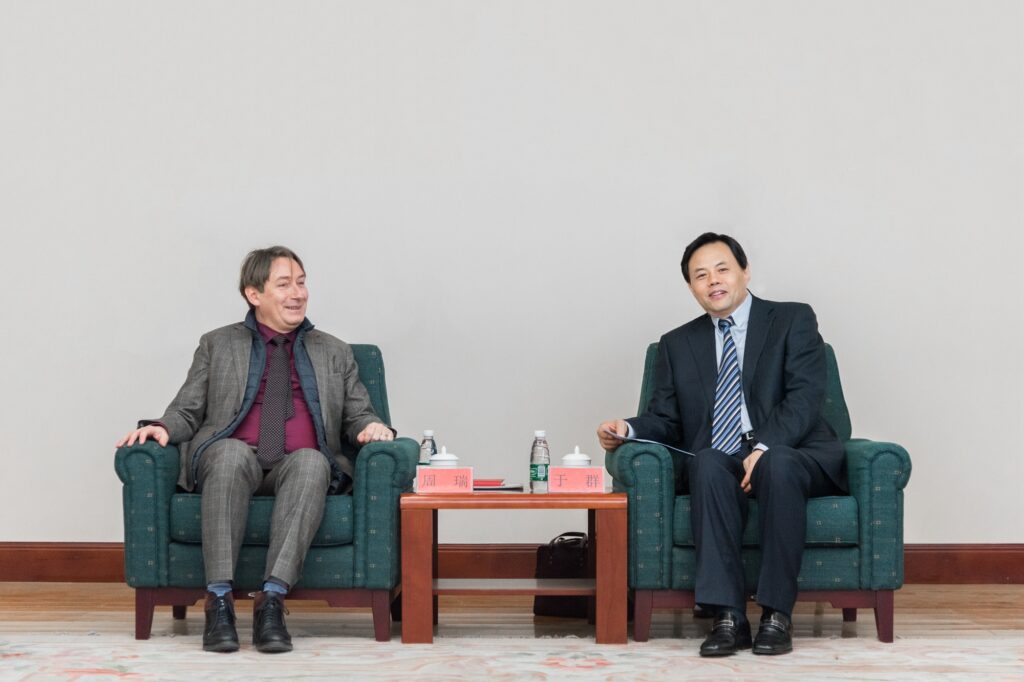
The Pangoal Institution
A day later, on December 3, Joël Ruet met with Yi Peng, Chairman of the Pangoal Institution in Beijing. This public policy think tank, working closely with Chinese companies, studies global governance and civil diplomacy in the countries and regions along the Belt and Road Initiative.
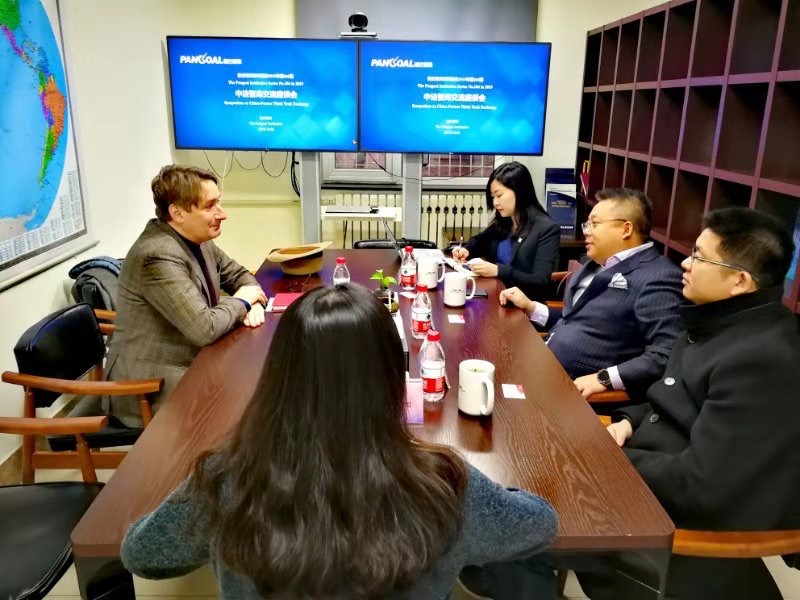
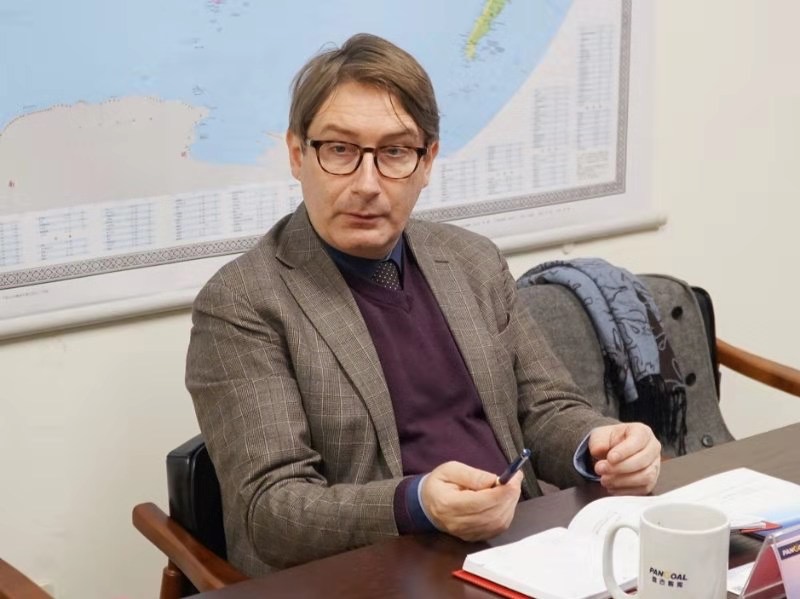
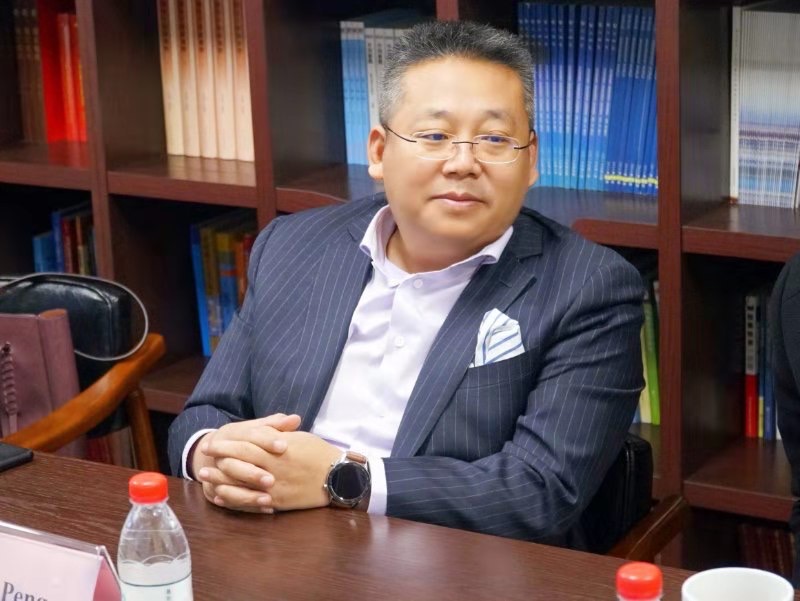
Joël Ruet on CGTN World Insight – Emmanuel Macron’s 2nd visit to China
As Emmanuel Macron lands in China, Joël Ruet discusses the potential political implications of the French president’s visit on French-Chinese chain CGTN’s World Insight.
Watch the discussion here.
Unlocking Finance: The Key Factor for Investment on Green Projects in Africa
A significant change in how investors approach green projects is underway. The fight against climate change requires and will require increases in the amount of capital being devoted to green projects. This underlines the importance of mobilizing financial actors from the private sector. Their awareness of this need and on the opportunities these investment give into re-defining the business, is already, for some of them, becoming a reality.
We now have the opportunity to move towards a “decarbonization“ of investment portfolios. For investment to match climate change mitigation goals, we will need concrete moves towards decarbonizing portfolios. The good news is that certain tools exist that can help make green projects more attractive to investors. This policy brief argues for renewed emphasis and action on these points to significantly boost investment. In other words, Africa is open for business.
The Bridge Tank contributes to the 2019 Horasis “China Meeting” in Las Vegas
On the 28th and 29th October 2019, the Horasis China Meeting took place in Las Vegas. One of the key parts of this event was a debate between Kristi Noem, Governor of South Dakota, and Pete Ricketts, Governor of Nebraska, on the US-China economic collaboration. Kristi Noem argued that, from an agricultural perspective, keeping many options was the best way for the US to succeed, allowing American families to purchase a large variety of goods. Pete Ricketts insisted that the rise of the middle class in China was a positive change, as it increased the average disposable income which allowed then the consumption of products such as bovine meat. Such a discussion was very interesting to follow, as it highlighted the differences between the point of view of American states involved in intense trade relations with China, and the position of Washington and Donald Trump.
Joël Ruet intervened in a panel entitled “What is next for China’s Belt and Road Initiative?”, which was chaired by Brendan Davis, Producer and Partner at International Troublemakers Incorporated. Among the other keynote speakers were Bo Inge Andersson, President of Yazaki North and Central America for Europe and Africa, Kai Xu, founder of the EverGreen Academy in China, and David Young, Chief Executive Officer of Oxford Analytica. In this panel, Joël Ruet argued that China’s work with development partners and multinational institutions would lead to an accelerated economic growth and poverty reduction.
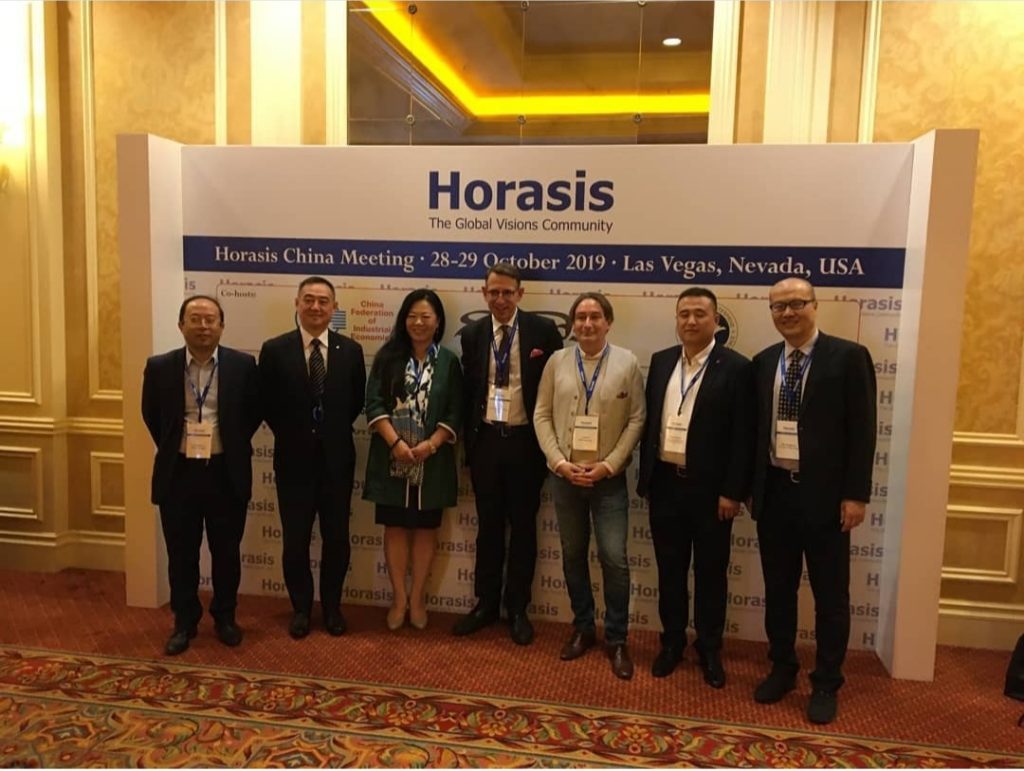
The Bridge Tank co-organizes the Sino-France Dialogue on Civilizations
On 22nd of October 2019, the Sino-French Dialogue on Civilisations, co-organised by the Bridge Tank and the China International Publishing Group, was host to three working panels focused on the French and Chinese cultures and global values. The discussions focussed on the intensification of bilateral human exchanges and on the definition of a civilisation based on equality, mutual learning, dialogue and inclusivity.
Wang Yi, Laurent Fabius, Jiang Jianguo and Dominique de Villepin inaugurated the Sino-French Dialogue on Civilisations. Wang Yi, Chinese Foreign Minister and State Councillor, called for a central place of equality, tolerance and cooperation within human civilisations. Laurent Fabius, former French Prime Minister and President of the Constitutional Council, highlighted that the Sino-French dialogue was a way to live together, especially given that the French and Chinese civilisations have in common the will for openness and a strong interest for balance. These common features should allow the Sino-French cooperation to defend multilateralism more efficiently than alone. Jang Jianguo, Director of the Chinese State Council Information Office and former deputy director of the Publicity Department of the Communist Party of China, highlighted that communication between the two civilisations, each with their own culture and wisdom, was the best way to achieve both French and Chinese dreams. Dominique de Villepin, former French Prime Minister, insisted on how important the human part of this dialogue of civilisations remained central in this context of a global crisis affecting political, economic and international model.
The speakers of the first panel were Xiang Yunju, executive vice-president of the China Literature and Art Foundation, Gérard Chesnel, former Minister-Councellor at the French Embassy to China and former French Ambassador to the Philippines, Luo Guoxiang, lecturer at the International Studies Institute of the Wuhan University, Deborah Furet, development director at the EHESS, Liu Ye, Chinese actor and knight of the French Order of Arts and Letters, Philippe Barret, French writer, and Han Yuhai, lecturer at the Chinese College of the Beijing University.
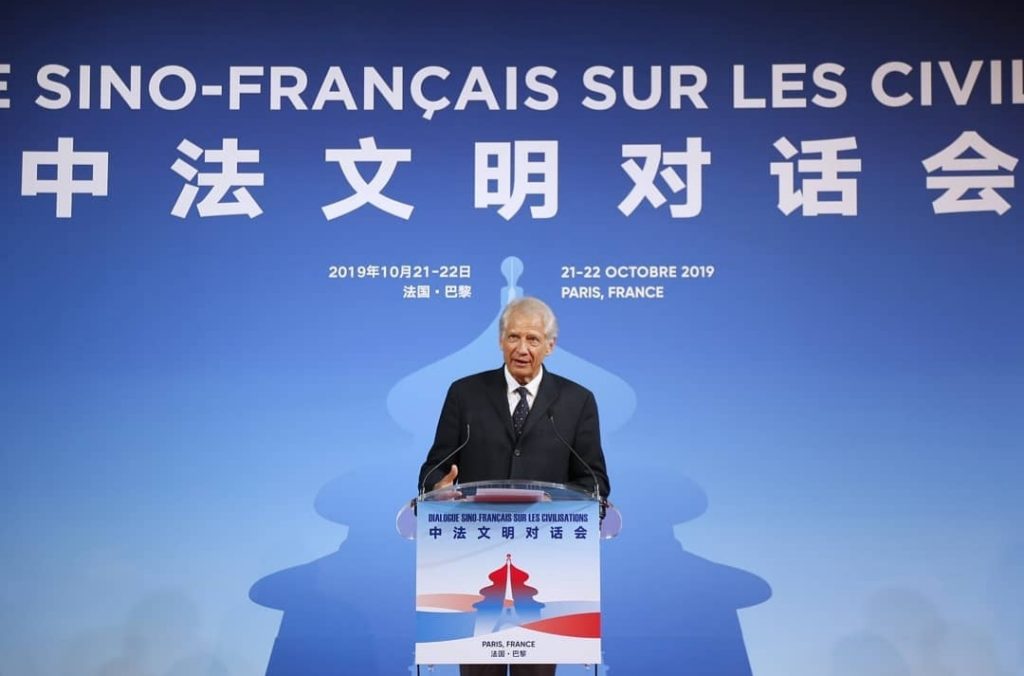
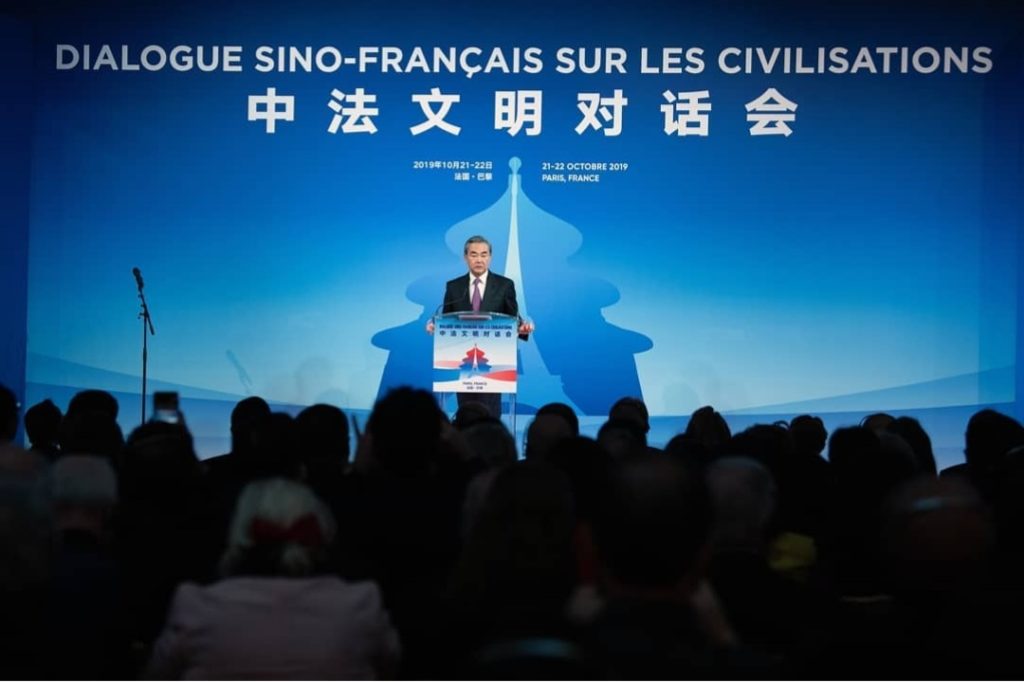
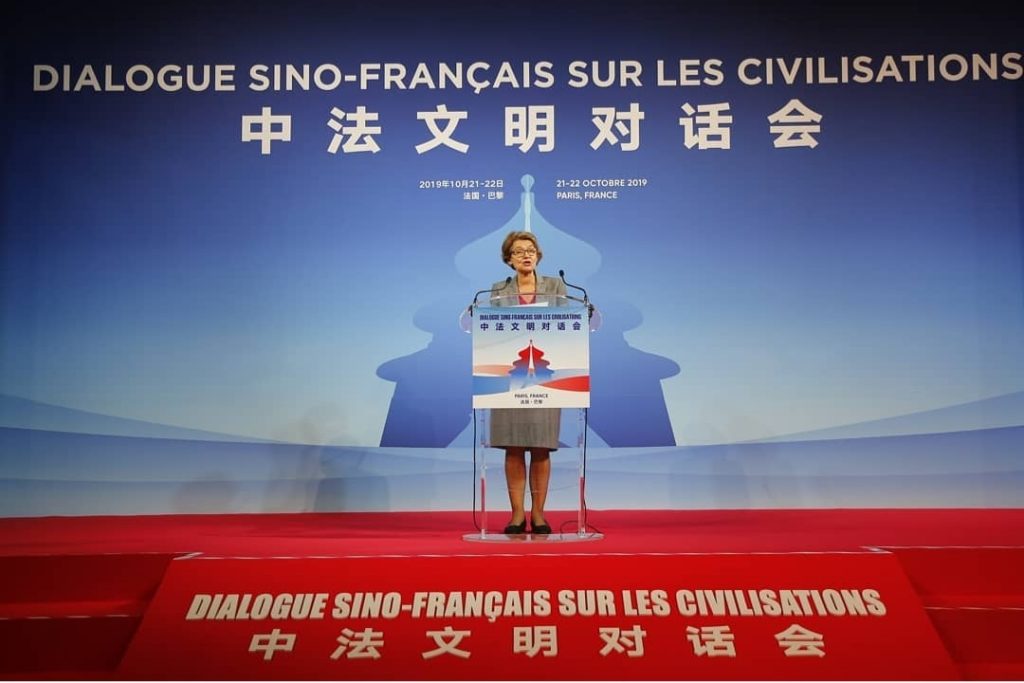
The panellists of the second session were Jean-Christophe Bas, Chair of the Dialogue of Civilisations Institute and former Director of Strategy and Development at the United Nations Alliance of Civilizations, Meng Man, lecturer at the History and Culture Institute of the Minzu University of China, Emmanuel Dupuy, President of the Prospective and Security in Europe Institute, Zhao Xiaoxing, assistant director and researcher at the Documentation Institute of the Dunhuang Academy, Alexandre Del Perugia, actor and director of the National Conservatoire of Circus and Mimes, and Shen Jian, President of the Chinese Association of research on the history of France and deputy director of the Academic Advisory Council of the Literature College of the Zhejiang University.
The third panel gathered Liu Shaowen, deputy director at the Research on the Cyberspace Institute of China, Emmanuel Lincot, lecturer at the Catholic Institute of Paris and expert in Chinese politics and history of art, Feng Ying, director of the Chinese National Ballet and knight of the French Order of Arts and Letters, Jean-François Di Meglio, President of Asia Centre, Yuan Min, CEO of Tencent, and François Quentin, former President of the administration council of Huawei Technologies France.
